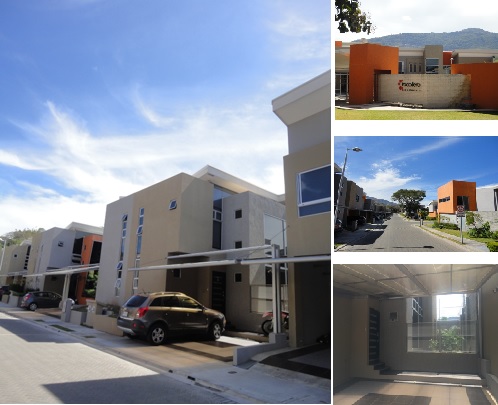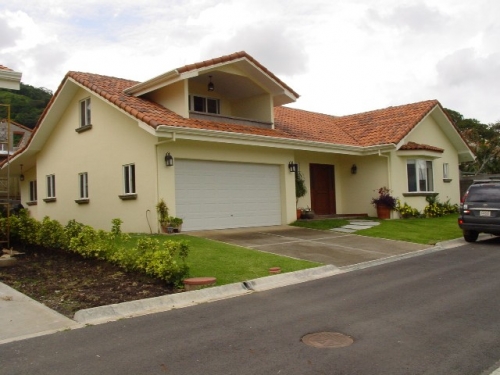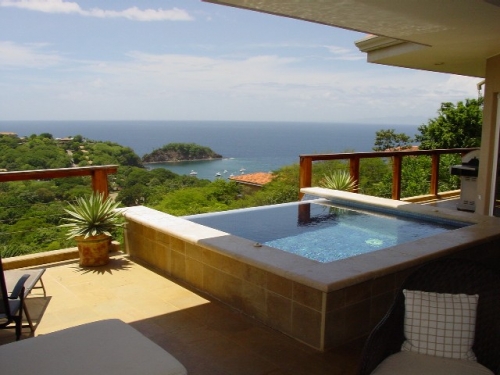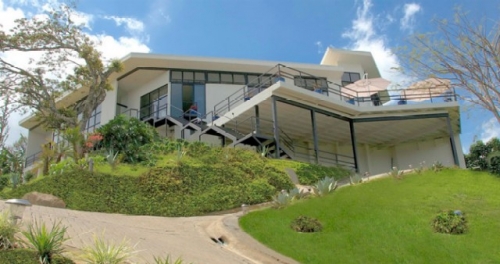Costa Rica Guide
Costa Rica Real Estate
List your property today!
Inclusion of real estate listings at Costa Rica Guide is
absolutely free of charge.
Featured Properties
Costa Rica Guide - Costa Rica Real Estate
Buying Process - Real Estate Information
Protecting Your Property Rights
By Juan Jose Lao Martin, Attorney
Buying real estate in Costa Rica normally triggers a lot of questions about the rights and obligations related to owning property in this country.
After questions involving foreign ownership, the next most commonly asked include the following: After buying property, how can "possession" rights be protected from being contested by third parties or so-called "squatters." And what should be done in the event of problems with squatters? The answer, in one simple phrase, is be careful and take precautions. You can save many headaches and legal procedures if, at the beginning of the purchasing process, you exercise caution and take some preventative measures..
In this article I will provide some of these basic guidelines for purchasing property in Costa Rica, useful both to foreigners and nationals. With a basic understanding of property ownership in Costa Rica, most problems related to possession rights and squatters can be avoided.
Possession vs. Ownership
Let me begin by stating that under Article 45 of the Costa Rican Constitution, both Costa Rican citizens and foreigners have the same individual and social rights regarding property ownership. The legal principle expressed in the constitution is that private property should not be infringed upon. This constitution guarantees that no one can have ownership rights on private property taken away except reasons of general public interest, and then only with prior compensation. This same principle was expressed in the 1896 Expropriation For Reasons of Public Interest Law.
The Costa Rican Civil Code, which dates from April 26, 1986, contains similar guarantees. Despite such guarantees, however, some issues must be understood. Under Article 277, the civil code establishes possession rights for a property by means of occupation. These possession rights can be acquired when the owner allows a third party to use and maintain possession of the property for more than a year (Par. 2, Art. 279 Civil Code).
Certainly there are grounds for challenging whether the possessor is a bona fide holder, but this action implies lengthy legal procedures. And obtaining possession rights has for some time been considered the first step to full ownership. Articles 856 and 860 of the Civil Code state that if a person holds possession rights on a homestead for at least ten years, that person can claim full ownership through the local courts, and request registration of the property at the National Registration Office (Registro Nacional) located in Zapote. In this case, the possessor must openly and publicly possess the property, and this individual must be recognized by his or her neighbors as the accepted owner of the land. Many properties have been registered at the National Registration Office using this procedure. As a matter of fact, on July 14, 1941, a special law was enacted to address this situation (Ley de Informacion Posesoria).
During the early part of the 1960s, when Costa Rica still had a limited agricultural frontier and additional farm land was needed, a special law was approved by the Legislative Assembly, and on October 14, 1961, the Land Institute was formed. This institute was later renamed the Agrarian Development Institute (El Instituto de Desarrollo Agrario).
This legislation authorized the Land Institute to intervene in cases in which possession rights were at stake. Even more, this law opened the opportunity for any interested party to file a complaint with the institute when a certain property was not being used to its full extent.
Under this law, an entire chapter was dedicated to land conflicts between owners of rural properties and de facto tenants. This law established, under Article 92, the right of the de facto tenant to receive protection from the institute in the event that possession of the property could be proven to have extended beyond the period of one year. Under this law the so called possession rights are discussed and interpreted, and the concept of mejoras, or "improvements" was implemented.
After a three-month period of a de facto tenancy of a rural property, if the owner failed to start legal eviction procedures, the squatter could not be evicted. After a year, the squatter would acquire the right to be compensated for any improvements in most cases real damages made to the land. Unfortunately many thousands of hectares of national forest and private reserve land were lost because of this.
Nowadays, with National Parks and Reserves carefully delimited and new laws created to address the destruction of natural resources, the concept of mejoras is expected to be used under more restrictive conditions. On the other hand, there is no doubt that the increase in rural population and the need for jobs, together with the increase in real estate prices, will push even more people toward squatting. Therefore, rural property owners should be even more attentive in protection their properties.
In the event of squatting problems, the owner must immediately react with legal measures. This means presenting within three months of the date the problem started either a civil procedure known as interdicto or a criminal action charging usurpacion. A late response from the owner can lead to lengthy and costly procedures, and, worst of all, to the possibility that the de facto tenants will control the property.
As a buyer, you should carefully study the situation of the property you are acquiring. If the property is registered at the National Registration Office, you should take the following basic steps.
Through your lawyer, carefully review the ownership status of the property at the National Registration Office.
Since there have been some laws that inadvertently protect the tenants of de facto occupants over the legal owner, you must ensure that both ownership and tenancy ("possession" rights) are uncontested. Otherwise, if possession rights are challenged in a local court or if you must seek legal remedies to gain back control of the property, you will be in a much more risky position.
The owner, or seller, of the piece of should hold the possession rights. Under normal circumstances, buying registered property is more secure. Certainly, however, the mere fact that the parcel has been registered does not necessarily mean there are no squatters, de facto possessors, or other contingencies that could affect its ownership. But in the event of a legal claim, it is easier for the owner to defend a registered parcel than a non-registered one.
Review carefully the legal status of current workers or the situation of any property keepers prior to executing the purchase.
Prior to any transfer of money, you must study the legal conditions and rights of any workers found on the property. If there are keepers of any kind they should be fully paid and compensated by the seller . You should not walk into any situation in which ownership or possession could be disputed by property keepers or former workers on the seller's payroll.
If your decide to keep any of the current workers on your payroll after the purchase agreement is executed, a written waiver from the worker reflection payment of all previous working benefits is a must. In addition, you should issue a simple, written contract that spells out clearly the date on which the worker is being hired, his or her salary and job benefits, any other conditions of employment, and, most importantly, the fact that he or she is a worker and not a possessor. A tremendous mistake can occur when the new owner is not careful and simply makes verbal agreements with the former property keepers or workers. In some cases, the careless buyer is shocked to learn that her or his worker could claim possession rights and other mejoras, and that, therefore, contingencies are placed on the property that could have been avoided with diligence and care.
Obtain a title report prior to starting negotiations and a second title search at the time of sale
A title search at the National Registration Office is relatively inexpensive. For less than US $1, any person, even the potential buyer, can obtain a title report called Informe Registral on the same day. Since this is a public institution, everyone is free to request the information needed on registered parcels. The parcel number and the province, or the name and ID card number of the owner are some of the information needed to obtain a fast title report.
You must verify the following information in the official records:
1. The
ownership of the property as reflected in the official records
2. The existence
or absence of mortgages, liens, annotations, or pending lawsuits on the property.
3. The existence or absence of additional encumbrances on the property, such as
public roads restrictions, water easements, other public utilities easements or
restrictions, or any additional restriction.
4. The property measure as shown
using the metric system.
5. The boundaries and neighbors of the property.
6. The official location of the property by township, county, and province.
7.
The official description of the property.
It is important to mention that in Costa Rica there is no title insurance as there is in the United States. But Costa Rica also has on of the most advanced and modern property registration systems in Latin America, with a reliable public registration office, where title searches are open to the general public through a computerized system. Photocopies of the official records of the property can be easily obtained form the National Registration Office at a cost of 50 colones per page.
Verify the cadastral plan or property map.
An important additional verification is to request from the seller a copy of the last version of the property map or plano catastrado. A certified photocopy of this map can also be easily obtained from the National Cadastre Office (Catastro Nacional) in Zapote. This procedure costs less than US $1 and the map can be obtained on the same day. This document will identify the measures, boundaries, and other topographic details of the property that is being purchased. In the event the seller does not provide such a map, it is advisable that prior to executing the property deed, a registered surveyor prepares a map of the property and registers it at the National Cadastre Office. This procedure normally takes between two and four weeks.
In addition to the above information your should ensure that the parcel is not included in a national park or reserve. National park restrictions can be searched for at the Ministry of Natural Resources (Ministerio de Recursos Naturales, Energia y Minas) in the National Parks Service (Servicio de Parques Nacionales). You can also investigate whether the property is subject to any restrictions from this office affecting the utilization of the land. You should also verify that the property is not subject to any restrictions imposed by the Forestry Department (Direccion General Forestal) based on forestry laws. This office is found within the same ministry.
You should consider a personal inspection of the property, locating boundaries and requesting information on current neighbors. For more accuracy, this inspection should be accompanies by your surveyor. A check should be done to determine the status of fences and property markers. On large properties with difficult access, it is normal to have a clearance known as a carril indicating property limits. These borders should be cleared at least once a year. Monitoring of the fences and property markers is essential in the prevention of squatting problems.
Whether the property is for living purposes, future development, or another function, the buyer must keep control of the parcel and be able to show that it serves a purpose. Preventive steps are the best means for preventing squatting problems.
About the author: Juan Jose Lao Martin is an attorney currently practicing in San Jose Costa Rica.
Please contact the author to obtain professional Costa Rica real estate legal advice.
Copyright 1996-2004
Note: The above information is not to be used for any other purpose other than private study, research, criticism or review. Thank you.






